
| Animalia | Primates | Cercopithecidae | Cercopithecus | Cercopithecus wolfi |
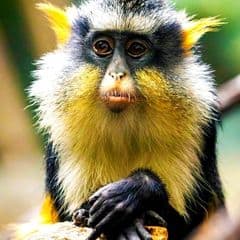

- Common Name: Wolf’s Mona monkey
- Taxonomy Classification Year: 1891
- Monkey Size: 44.5 to 51.1 cm (17.52 to 20.12 in)
- Skin Color(s): Dark gray and white to pale yellow
- Habitat: Rainforest
- Diet: Omnivorous
- Native Countries: Democratic Republic of Congo, Uganda
Wolf’s Mona Monkey Distribution
Wolf’s Mona Characteristics
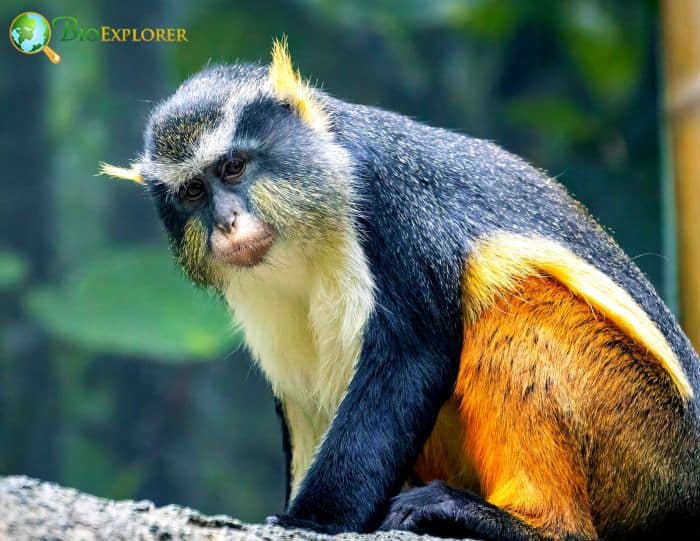
The Wolf’s mona monkey[1] (Cercopithecus wolfi), also called the wolf monkey, is a colorful Old-World monkey in the Cercopithecidae family.
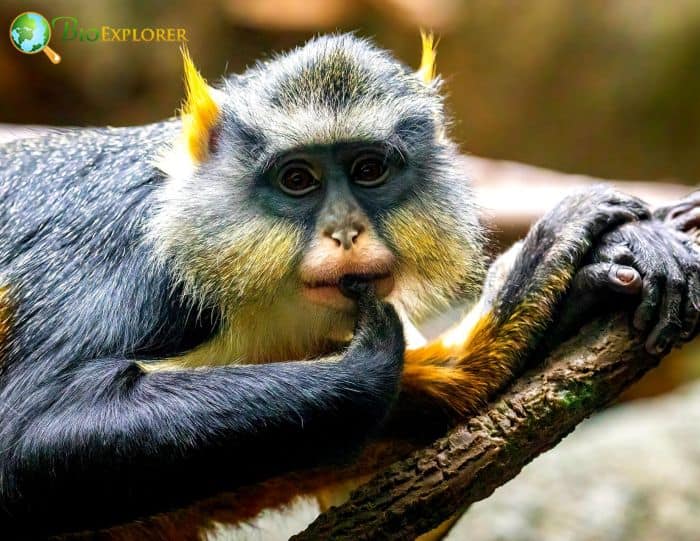
- These African primates are found in Central Africa, mainly between Uganda and the Democratic Republic of Congo. It lives in primary and secondary lowland forests and swamp forests.
- The expressive face of Wolf’s mona monkey is characterized by golden eyes; a long, flat, dark nose; and a pink mouth and chin.
- Dark fur covers the cheekbones, and long yellowish fur covers the lower part of the face. Some of these yellowish strands come out of the monkey’s chin.
- A bushy gray brow bone (like a grandfather’s bushy eyebrows) turns into a reddish tuft that rests on both ears.
- The back of this graceful monkey is covered with dark gray fur with a reddish spot in the center.
- The front legs have dark gray to black fur, the hind legs are light reddish brown, and the undersides are white to pale yellow.
- The Wolf’s mona monkey’s tail is dark gray at the base, turning black as the fur extends to the tip. Fur color varies by subspecies. Monkeys rely on fur coloration to recognize each other and attract potential mates.
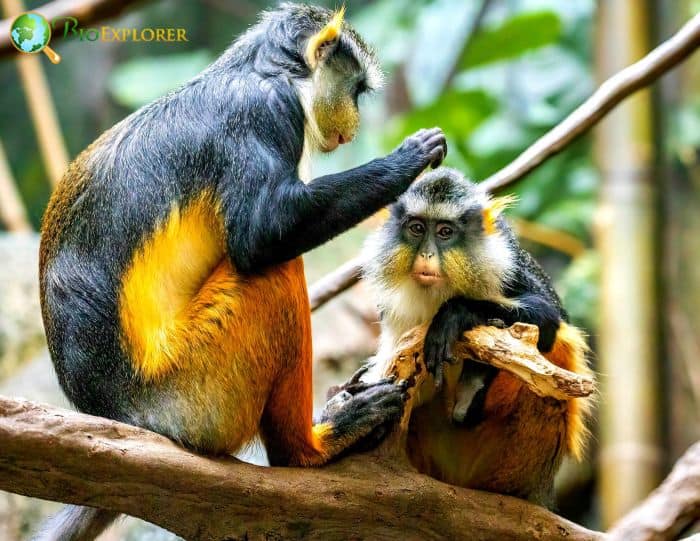
Wolf’s Mona Facts
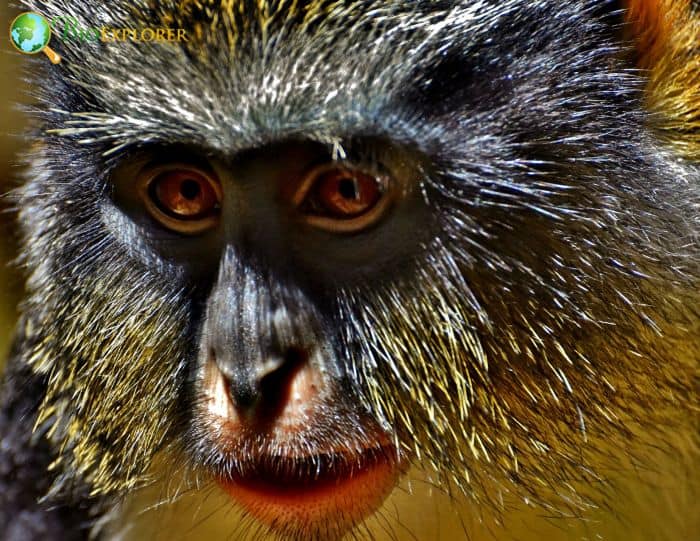
- Wolf’s mona monkeys have huge cheek pouches that they fill with the fruit they pluck as they eat to enjoy a tasty fruit snack from a safe spot in the forest canopy.
- The calloused patches on the monkeys’ buttocks, scientifically known as perch calluses, provide the monkeys with some comfort when perched on tree branches or resting.
- Males have a blue scrotum (common in Cercopithecus species), which scientists think may be necessary for attracting females.
- To keep in contact with each other while foraging, Wolf’s mona monkeys occasionally growl to announce their position in the forest canopy.
- Wolf’s mona monkeys are often found in the company of other primate species, most commonly black-crested mangabeys, colobus, bonobos, red-tailed monkeys, and other monkey species.
Suggested Reading: Different Types of Small Monkeys
Cite This Page
APA7MLA8Chicago
BioExplorer.net. (2025, April 14). Wolf’s Mona Monkey. Bio Explorer. https://www.bioexplorer.net/animals/mammals/monkeys/wolfs-mona-monkey/.
BioExplorer.net. "Wolf’s Mona Monkey" Bio Explorer, 14 April 2025, https://www.bioexplorer.net/animals/mammals/monkeys/wolfs-mona-monkey/.
BioExplorer.net. "Wolf’s Mona Monkey" Bio Explorer, April 14 2025. https://www.bioexplorer.net/animals/mammals/monkeys/wolfs-mona-monkey/.










